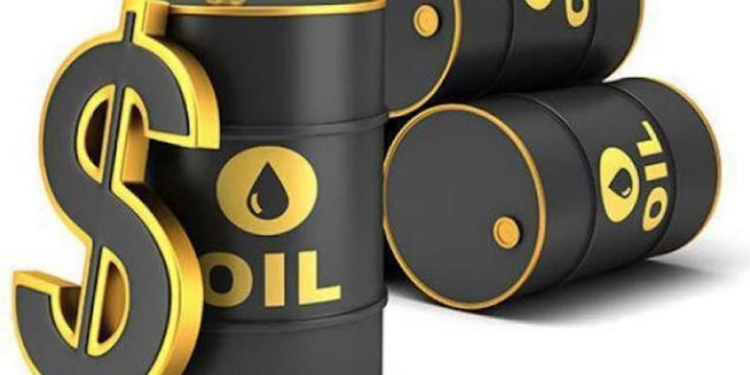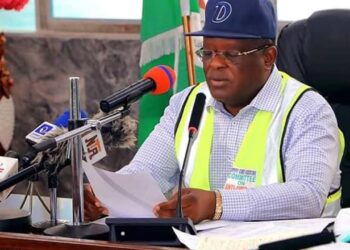The Federal Government hopes to make N7.69 trillion as oil revenue to partly finance the 2024 budget of N27.5 trillion.
According to the Breakdown & highlights of the 2024 executive budget proposal presentation document by the Minister of Budget and Economic Planning, Abubakar Atiku Bagudu, the proposed oil revenue for 2024 is over three times the amount budgeted for 2023, which was about N2.23 trillion.
This means that the Federal Government plans to triple revenue from a sector, crippled by challenges, such as oil theft, and infrastructural deficit, among others, which led to declining revenue over the years.
The revenue from the oil sector will make up 41.98% of the total revenue (N18.32 trillion) expected in 2024.
However, Nairametrics observed that the Federal Government anticipates a decline in oil revenue by 2025 (N6.83 trillion) and 2026 (N7.08 trillion), which is a slight improvement but still a decline when compared to 2024.
FG always falls short of oil revenue targets
Nigeria’s oil sector has been bedeviled by several challenges, which led the Speaker of Nigeria’s House of Representatives, Hon. Tajudeen Abbas to recently inaugurate a Special Ad Hoc Committee on oil theft.
The committee was tasked with investigating the growing spate of pipeline vandalism as well as illegal oil bunkering and theft in the country.
According to Abbas, Nigeria loses over 300,000 barrels of crude oil per day and N1.29 trillion yearly due to theft, vandalism, and other criminal activities.
Due to the challenges in the oil sector, the Federal Government hardly made up to 80% of its target revenue from this sector in the past two years.
In 2022, the Federal Government generated only 35.4% of its targeted oil revenue. It had planned to generate N2.19 trillion but only N776.35 billion was made.
Also, the Federal Government made only about 79.3% of its target so far in 2023 between January to September.
The presentation document read:
- “The gross oil and gas revenue for FY2023 was projected at N9.38 trillion. As of Sept 2023, N5.58 trillion was realized as against the prorated estimate of N7.04 trillion. This represents about 79.3% performance.”
According to the Gross Domestic Product (GDP) report recently released by the National Bureau of Statistics (NBS), Nigeria’s oil sector grew –0.85% in Q3/2023.
However, what may seem like a decline is an improvement when compared with the corresponding quarter of 2022 and the previous quarter (Q2/2023). The oil sector growth rate was -22.67% in Q3/2022 and -13.43% in Q2/2023.
Nairametrics recently reported that this slight improvement, which also triggered an improvement in oil revenue this year, may be due to the current administration’s efforts to enhance the living conditions of Niger Delta people, engage oil operators, and create an enabling environment for investments into the sector.
The Federal Government targets a conservative oil price benchmark of $77.96 per barrel, coupled with a daily production estimate of 1.78mb/d for 2024.
Regarding the forecast for oil revenue, the presentation document read:
- “Crude oil forecasts are based on available information on approved work plans. The crude oil forecast assumes that all evacuation lines will be operational as the security situation is expected to improve.
- “The gas forecast also considered the Nigeria Gas Flare Commercialization Programme (NGFCP) projects’ onstream commencement and Gas export commencement in Anyala-Madu Field in 2025.
- “All Nigerian crude grades are priced on a ‘Formula pricing basis’ of which Dated Brent contributes between 98%-99% of the final price. However, the budget benchmark price has discounted for vagaries in international oil market price.”
However, there are indications that the Organization of Petroleum Exporting Countries (OPEC) and its ally’s resolve to ensure crude oil production cuts may make Nigeria’s proposed revenue from crude oil sales for 2024 too ambitious or unachievable.
In a report from S&P Global Commodity Insights, it was stated that Clementine Wallop, senior adviser to political risk consultancy, Horizon Engage, believes that Nigeria’s oil sector is struggling, and the administration of Bola Tinubu still has a lot of work to do.
























